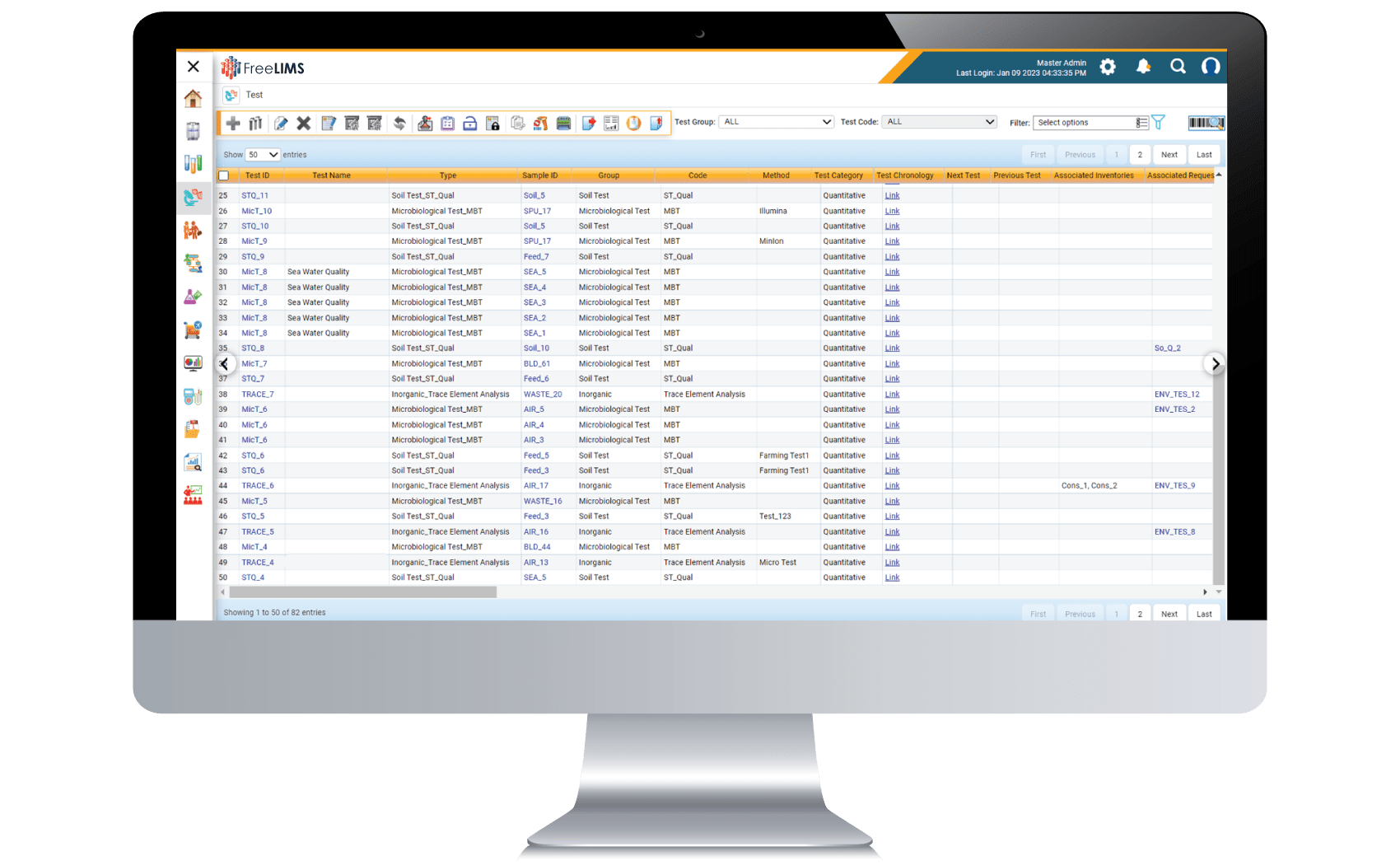Agriculture LIMS Software to Streamline Workflows & Increase Efficiency in Agriculture Testing Laboratories
A Free LIMS Solution for Agriculture & Farming
Agriculture testing laboratories perform a myriad of tests on everything from seed to harvest. They perform various analytical tests, ranging from soil fertility testing, soil nutrient and pH analysis to testing for fertilizers, pesticides, plant tissues, compost, and moisture. They assure the quality of raw ingredients to final edible products and hold a huge responsibility for the safety of human beings. Agriculture testing laboratories come across several challenges on a day-to-day basis. This includes managing and tracking samples, automating workflows, reducing turnaround time, enforcing standard operating procedures (SOPs), generating custom certificates of analysis (CoAs), and complying with regulatory requirements, such as GAPs, ISO/IEC 17025:2017, and 21 CFR Part 11.
FreeLIMS is a cloud-based Laboratory Information Management System (LIMS) that helps agriculture laboratories to manage various types of agricultural samples, such as soil, feed, seed, grain, fruit, dairy, vineyard, poultry, and plant tissues. FreeLIMS enables agriculture laboratories to deliver more accurate and faster test results, automate experimental workflows, improve workflow standardization, generate custom CoAs, and meet regulatory guidelines while eliminating time-consuming manual processes.



